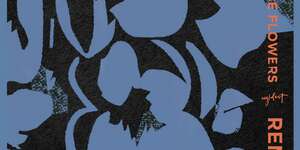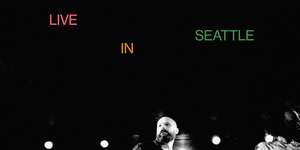Dama Scout
Dama Scout
country: Scotland, UK
genre: Rock
styles: Indie Rock, Post-Punk, Noise Rock, Art Rock

emails from suzanne
 Single
Single
Spotify Bandcamp Soundcloud
Reviews and Comments
gen wo lai (come with me) finds Dama Scout continuing to write, record, mix and produce everything themselves, as well as creating their own artwork and videos - the result is a mesmerising, multi-faceted world that's entirely their own. Across the album's 12 tracks, they weave a patchwork of dexterous melodies and disorientating textures with particular inspiration coming from East Asian pop and film, piecing together a kaleidoscope of strangely captivating elements to create a surreal, dreamlike state that's as strikingly haunting as it is ethereal.
In the process, the band tackle stories of alienation, cultural displacement, frustration and loss, and shift them into a source of cathartic reprieve, a tribute to perseverance. Lyrically speaking, Liu says much of the LP focuses on her experience of growing up in the UK to parents who emigrated from Hong Kong. Psychedelic opener 'gen wo lai' portrays an image of Liu’s grandmother eating chicken feet, with lethargically sweet vocals careening over a speckled, industrial landscape. “The British part of me was confused by it because kids at school would always make fun of my packed lunches or stuff in my fridge,” she says. “But then I gradually decided to take ownership of who I am; not being embarrassed about it and not resenting my family for it.”
It’s in this catharsis of owning everything that you are that anchors the album’s intention, where sonic tensions are meticulously built alongside words of isolation and heartache, only for the band to deconstruct it entirely with a booming, purgative release. Mimicking the unpredictability of playing live shows, the tension between audience and artist and the push-and-pull of creative collaboration, gen wo lai (come with me) ushers in an authoritative new era for the band. Here, jolting nightmares and reality-bending dreams exist side-by-side, and Dama Scout are our guides for every unnerving, enchanting moment.
gen wo lai follows their 2018 EP dama scout, which earned them a reputation for chaotic yet catchy soundscapes, where Liu’s pop vocals are juxtaposed with disorientating, jangly guitars and propulsive rhythms. In the process it drew rave write-ups from the likes of NME, NPR, DIY, Clash, The Line of Best Fit, Dork and more, alongside radio support including NTS, BBC Radio 1 and BBC 6Music, and shows with Weaves, Jay Som and Happyness.
latest releases





















